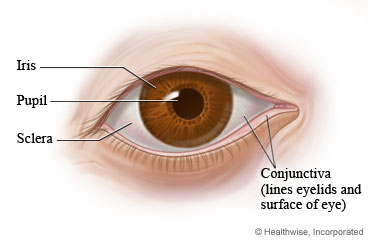Learning About Vision Tests

What are vision tests?
The four most common vision tests are visual acuity tests, refraction, visual field tests, and colour vision tests.
Visual acuity (sharpness) tests
These tests are used:
- To see if you need glasses or contact lenses.
- To monitor an eye problem.
- To check an eye injury.
Visual acuity tests are done as part of routine exams. You may also have this test when you get your driver's licence or apply for some types of jobs.
Visual field tests
These tests are used:
- To check for vision loss in any area of your range of vision.
- To screen for certain eye diseases.
- To look for nerve damage after a stroke, head injury, or other problem that could reduce blood flow to the brain.
Refraction and colour tests
- A refraction test is done to find the right prescription for glasses and contact lenses.
- A colour vision test is done to check for colour blindness.
Colour vision is often tested as part of a routine exam. You may also have this test when you apply for a job where recognizing different colours is important, such as truck driving, electronics, or the military.
How are vision tests done?
Visual acuity test
- You cover one eye at a time.
- You read aloud from a wall chart across the room.
- You read aloud from a small card that you hold in your hand.
Refraction
- You look into a special device.
- The device puts lenses of different strengths in front of each eye to see how strong your glasses or contact lenses need to be.
Visual field tests
- Your doctor may have you look through special machines.
- Or your doctor may simply have you stare straight ahead while they move a finger into and out of your field of vision.
Colour vision test
- You look at pieces of printed test patterns in various colours. You say what number or symbol you see.
- Your doctor may have you trace the number or symbol using a pointer.
How do these tests feel?
There is very little chance of having a problem from this test. If dilating drops are used for a vision test, they may make the eyes sting and cause a medicine taste in the mouth.
Follow-up care is a key part of your treatment and safety. Be sure to make and go to all appointments, and call your doctor or nurse advice line (811 in most provinces and territories) if you are having problems. It's also a good idea to know your test results and keep a list of the medicines you take.
Where can you learn more?
Go to https://www.healthwise.net/patientEd
Enter G551 in the search box to learn more about "Learning About Vision Tests".
Current as of: July 31, 2024
